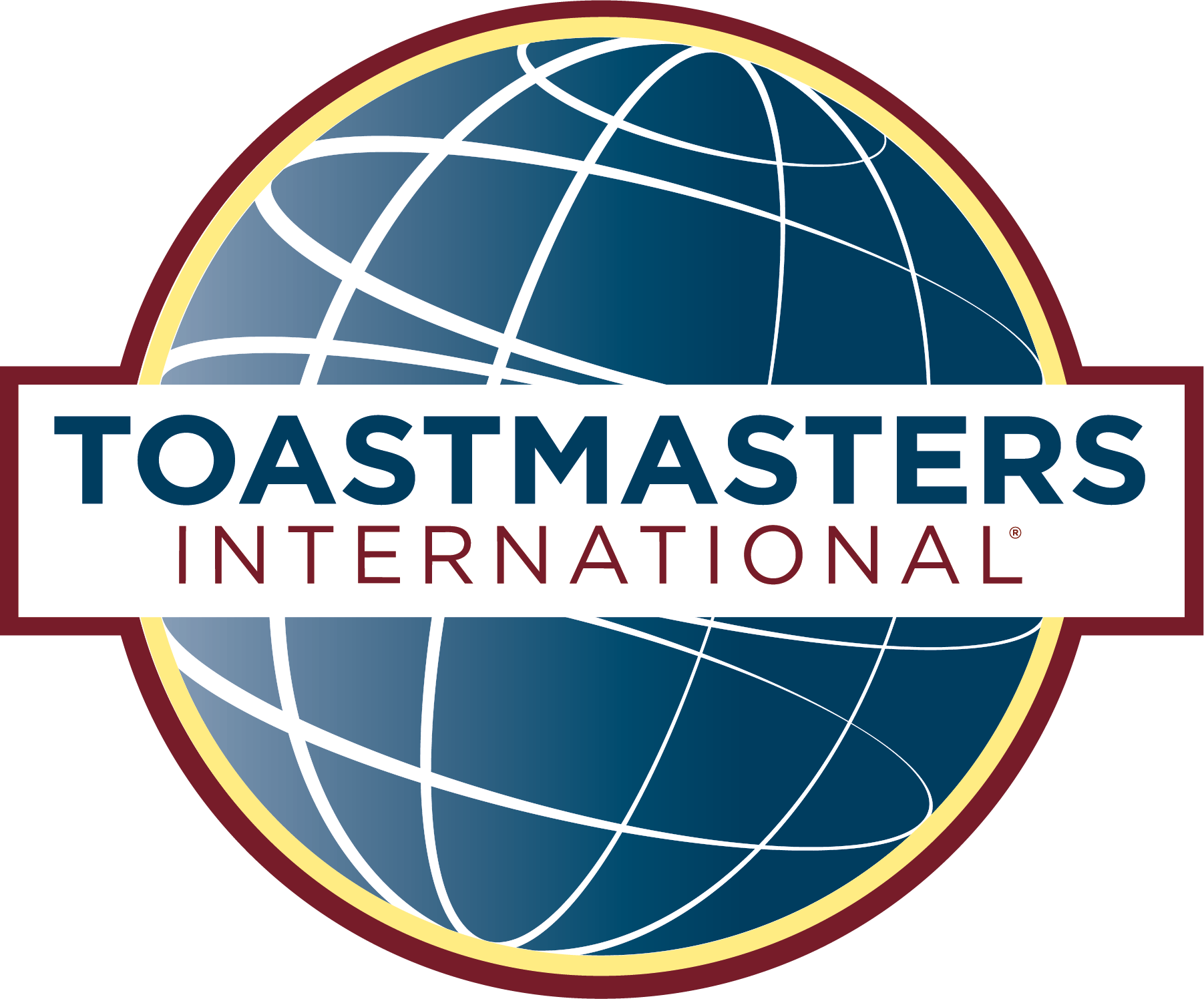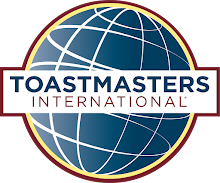http://www.toastmasters.org/ToastmastersMagazine/ToastmasterArchive/2008/September2008/Articles/OutstandingOrator.aspx
Opt to Be an Outstanding Orator
By Richard R. Bonner, CC
Many of us joined Toastmasters with the expectation, or at least the hope, that it would better our job and career prospects.
We probably thought in terms of improving our communication skills in staff meetings, thinking more quickly on our feet when questioned by the boss or customers, making creditable presentations both to staff and clients, and, if called upon – God forbid – giving bona fide speeches before live audiences.
In all those endeavors, we likely cared more about being competent for our job performance than about being excellent for its own sake. We had neither the time nor the inclination to try to be outstanding speakers and communicators; we simply wanted to be good enough to get what we needed. We didn’t care so much about looking really good as not looking really bad. In essence, it came down to wanting a quick fix for promotions and raises. Show us the money!
But if truth be told, that kind of thinking grievously shortchanges us, denying us the brawny passion and satisfaction that comes from becoming a standout speaker.
Woodrow Wilson’s Inspiration
Consider the case of U.S. President Woodrow Wilson, as related by his official biographer, Ray Stannard Baker. While a student at Princeton University, Wilson read a magazine article about great orators, which included his hero, British Prime Minister William Gladstone. The article so excited and inspired him that he vowed he, too, would become a great speaker and statesman. He practiced aloud in the woods near campus and, when on vacation, in his father’s church on weekdays. The young Wilson soon gained a reputation as a fine speaker and debater, which eventually brought him back to the school as a professor, despite an indifferent academic record.
In no time Professor Wilson’s lectures drew some of the most enthusiastic audiences on campus. By continuing to feed his fire and passion for public speaking, he began to draw even more notice, and it wasn’t long before he became the highest-paid member of the faculty; from there he became president of the school. Next, he drew upon his speaking skills to help himself win the governorship of New Jersey and finally the presidency of the United States.
All the while he felt buoyed by the sheer exhilaration of public speaking, “because it sets my mind – all my faculties – aglow...I feel a sort of transformation – and it’s hard to go to sleep afterwards” (from Baker’s Woodrow Wilson: Life and Letters, published in 1927).
Making the Commitment
Let’s say that some of us wanted to become outstanding speakers. What might be our first step? Simply deciding to make the commitment, as Wilson did.
We could make the commitment privately to ourselves or, if we need to feel the spur and the lash to keep from backsliding, we could announce our decision at a Toastmasters meeting. Making the commitment sets the fire, and to keep it stoked and fueled, to keep the interest and passion up, we could immerse ourselves in the study of public speaking through books, CDs, DVDs, lectures, seminars, the Internet and classroom courses. Such sources could include rhetoric, great speeches of history, grammar and usage, diction, voice improvement, gesturing and body language, the lives of history’s famous orators, and other topics.
Perhaps we, too, could feel inspired – transformed – by the words of, say, Queen Elizabeth I addressing her troops at the approach of the Spanish Armada: “I know I have the body of a weak and feeble woman, but I have the heart and stomach of a king, and a king of England too.”
Or a poignantly anguished Nehru eulogizing the assassinated Mahatma Gandhi: “All we know is that there was a glory and that it is no more; all we know is that for the moment there is darkness, not so dark certainly, because when we look into our hearts we still find the living flame which he lighted there.”
Or the thrilling hope of playwright Vaclav Havel upon assuming the presidency of the newly liberated Czechoslovakia after decades of communist rule: “Let us teach ourselves and others that politics can be not only the art of the possible – especially if this means the art of speculation, calculation, intrigue, secret deals and pragmatic maneuvering – but that it can even be the art of the impossible, namely, the art of improving ourselves and the world.”
From the Page to the Podium
Of course, “doing” is usually the most effective way of learning, but don’t scant the study and book learning here. It’s invaluable. It gives us the substance and direction needed. It provides the theory for the practice – the theory we take from the page to the podium.
Besides, we’re already doing “the doing” in Toastmasters! And that doing should include entering speech contests. (Granted, somebody’s got to lose in a contest, but everyone who learns something – who improves from the experience – wins.)
Aside from the book learning, we have ourselves as resources to draw upon.
In 1830 U.S. Senator Daniel Webster responded to a speech from a political opponent by quickly preparing and delivering one of the great orations of history. When asked how long it had taken him to prepare, he replied: “20 years.”
For 20 years Webster had thought hard about, and agonized, over the sentiments that had led to his opponent’s position, drawing heavily upon the resources of his own life, according to the book Discussion and Debate: Tools of Democracy by Henry Lee Ewbank and J. Jeffery Auer.
Virtually all of us in Toastmasters have at least 20 years of life to draw upon: our education (formal and informal), our hopes and fears, our triumphs and tears. In looking over our life journeys, many of us might see only vast unremarkable stretches, but they’re not wastelands. They’re fallow fields whose rich potential awaits the skilled orator to unearth.
The Incremental Approach
“Enough,” says a show-me-the-money type. “Spare me the poetry. Who needs, and who can take, all the effort required to become an outstanding speaker? Being a decent speaker is all you need to be.”
That’s possible, but first let’s realize that the commitment and effort needed to excel in speaking seem far less unnerving if we demand only small but continuous steps of improvement from ourselves. This incremental approach takes major pressure off us yet puts improvement on a comfortable auto-pilot. Then one day, without our feeling the pain of the process, it just dawns on us that we’ve become darned good speakers.
Second, if competent speaking ability will likely help us on the job, what might outstanding speaking ability do?
Certainly we can at least consider making the extra effort, feeling a soul’s awakening as we uncage the oratory beast within ourselves. Maybe we’ll lie awake some nights, not in dread of a speech to be given but from a lingering high we’ve gotten from a speech just given, and given well. Put a dollar figure on that!
Richard R. Bonner, CC, a former writer for several daily newspapers, is a member of the Jewel City Toastmasters club in Glendale, California. You can reach him at Bonner1301@yahoo.com.





No comments:
Post a Comment